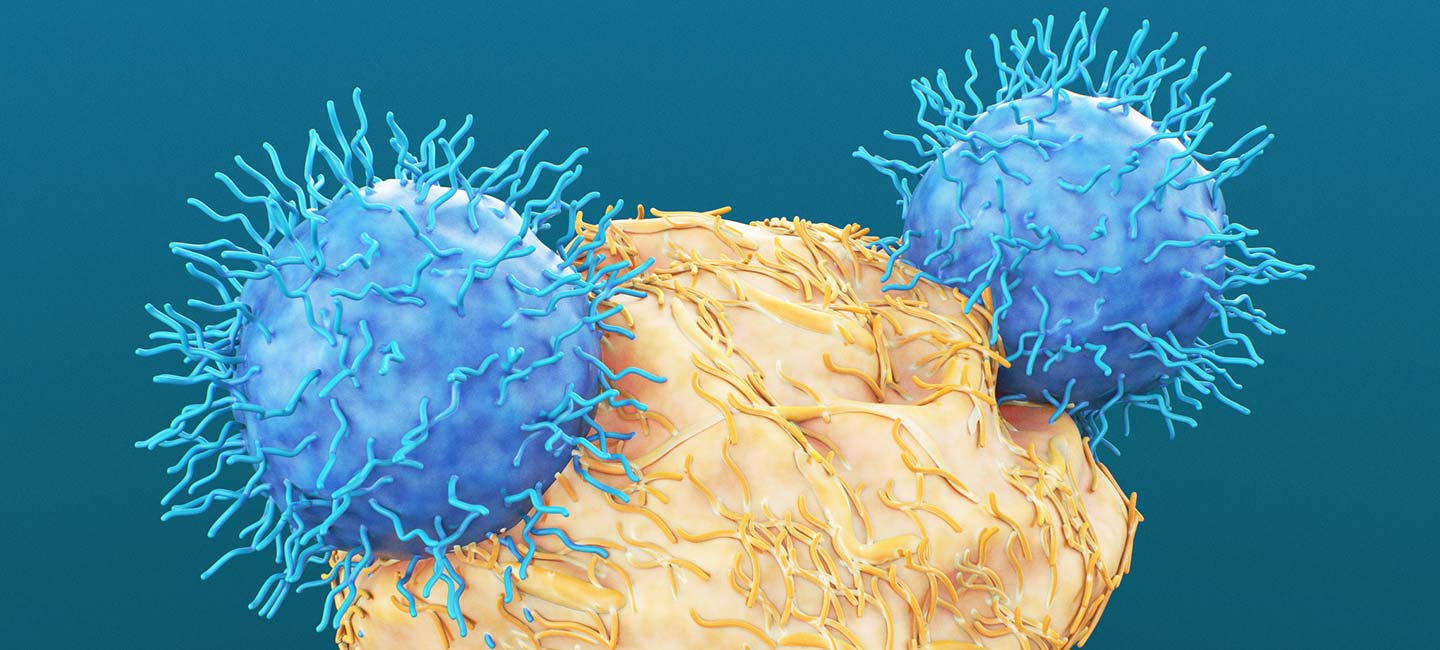‘Off the Shelf’ CAR T Shows Promise
Cellular immunotherapy has provided a much-needed treatment option for cancer patients, especially those with a disease that has stopped responding to treatment or who have relapsed after multiple therapies. For most cellular immunotherapies, like chimeric antigen receptor T-cell therapy (CAR T), a patient’s own immune cells are used to create the treatment. However, what if a patient has a low immune cell count or their T cells aren’t in the best shape?
A new option could be allogeneic CAR T therapy. Often referred to as “off the shelf” CAR T, this type of cellular immunotherapy involves using T cells from donors’ circulating blood or sometimes umbilical cord blood.

Dr. Fred Locke, Department of Blood and Marrow Transplant and Cellular Immunotherapy
“Allogeneic CAR T-cell therapy offers the opportunity to address and overcome some of the logistical and manufacturing challenges of autologous CAR T cells,” said Dr. Frederick Locke, vice chair of the Department of Blood and Marrow Transplant and Cellular Immunotherapy and co-leader of the Immuno-Oncology Program at Moffitt Cancer Center.
Allogenic CAR T cells can be manufactured at a lower cost on a much larger scale and can be stored ahead of time. This means the therapy can be shipped to a hospital for use as soon as it receives an order, instead of the several weeks it can take to ship a patient’s cells to a manufacturing site and wait for the re-engineered cells to return.
Moffitt is one of a few hospitals nationwide testing ALLO-501a, an allogeneic CAR T therapy product from Allogene Therapeutics, in combination with ALLO-647, a monoclonal antibody that depletes lymphocytes in the body to help prepare the patient for the new immune cells, in patients with diffuse B cell lymphoma who have failed two or more prior therapies. Locke says the combination can help mitigate some of the side effects seen with autologous CAR T-cell therapy.
"ALLO-501a, an allogeneic donor CAR T-cell therapy, is genetically engineered to prevent graft versus host disease, a possible complication where infused donor CAR T cells attack healthy cells instead of cancerous ones. And combining it with the lymphocyte depleting agent ALLO-647 helps prevent rejection of the donor CAR T cells and allows them room to grow and seek out cancer cells,” he said.
Locke presented early results from the ALPHA 2 trial, as well as updated outcomes from the related ALPHA 1 trial, at the American Society of Clinical Oncology annual meeting.
“The results have been exciting. We’re seeing deep and durable responses in a number of lymphoma patients who’ve gotten this treatment,” said Locke. “About a third of the patients remain in ongoing remission a year after treatment, which is in the ballpark of what we see with autologous CAR T-cell therapies.”



